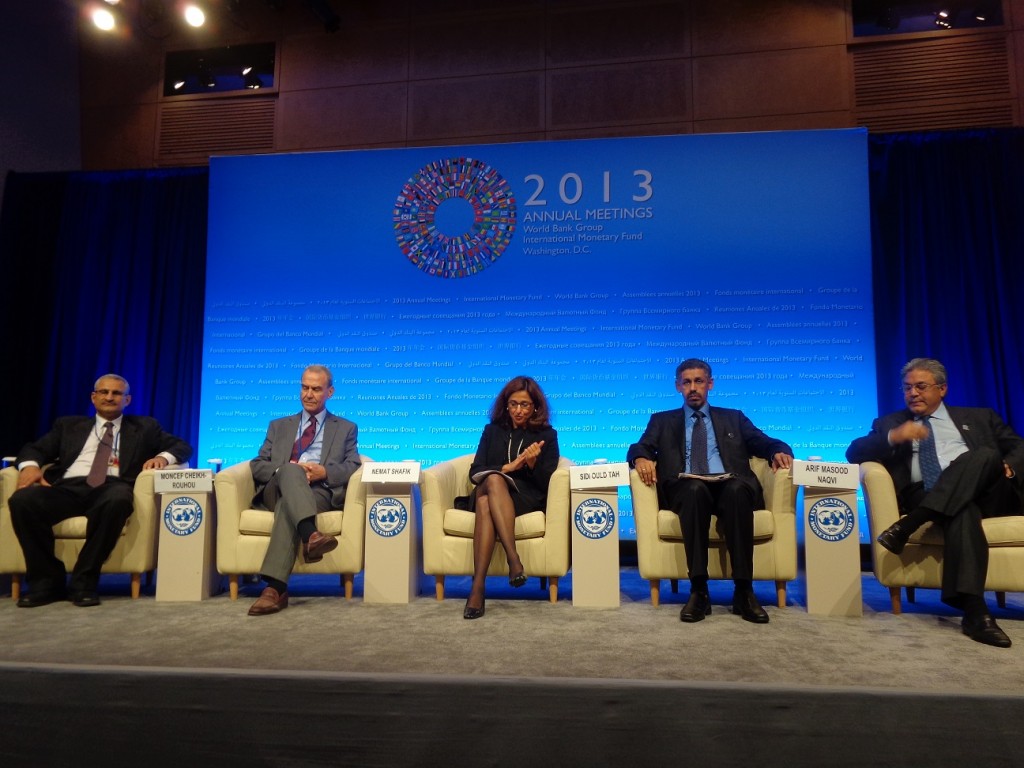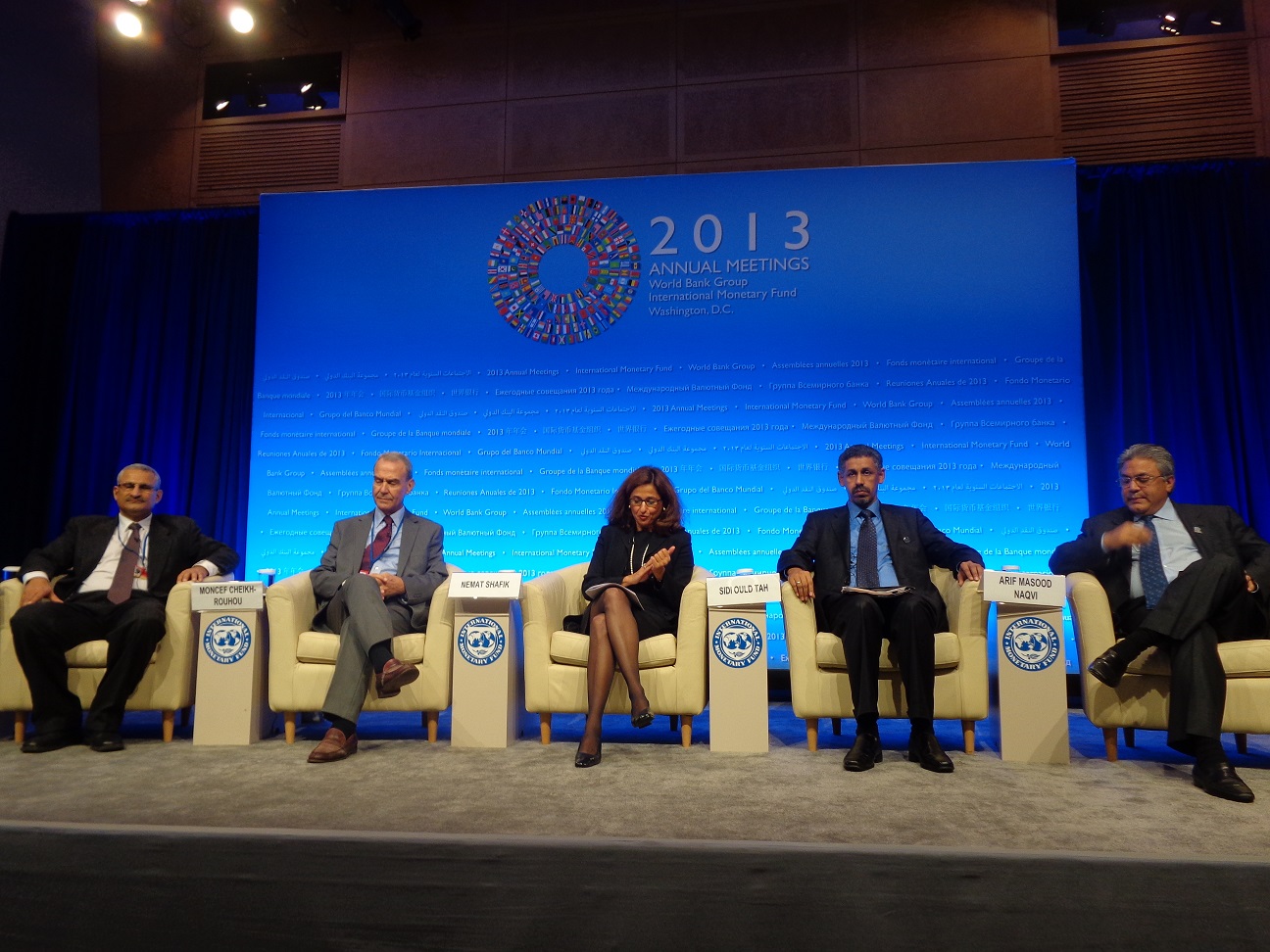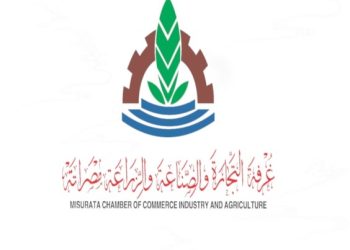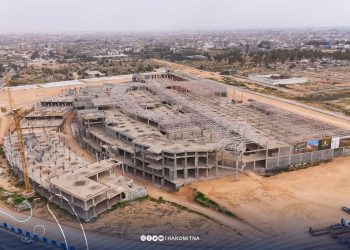By Sami Zaptia.

Washington DC, 14 October 2013:
At an IMF organized forum during the IMF World Bank Annual Meetings 2013 here in . . .[restrict]Washington DC, the subject of job creation in the Middle East and North Africa (MENA) was debated yesterday.
The debate was entitled “Kick starting job-creating growth in the Middle East and North Africa” and the panel had representatives from Egypt, Tunisia, Mauritania and Dubai and moderated by Nemat Shafiq, Deputy Director of the IMF.
Setting the scene for the debate, Shafiq said that the economies of the region are struggling to grow in view of the huge political turmoil. But that there are now, post the Arab Spring very high popular expectations – including jobs.
Unemployment averages 11 percent in the region and youth unemployment averages 22 percent at least. In some states 1 in 4 youth are unemployed and in some up to 30 percent, she explained.
Those who have jobs work mostly in the informal sector with growth at about 2 percent in 2013, which is not enough to meet the popular expectations in the region or to create enough jobs to absorb the annual new job seekers, Shafiq added.
Shafiq asked how is the potential of the region going to be unlocked given that it is known what needs to be done. How is action to be achieved she queried?
Improve the business environment
Unemployment is very high and job creation is very low in the region, but job creation will not happen just by government intervention, the panelists noted. It needs the private sector to play its role and to be able to create jobs.
The private sector needs to be able to operate in the business sector and needs the large and dominant state sector in most the Arab world to vacate the business space and allow the private sector to operate.
The state needs to enable the private sector by making “doing business” easy. But specifically with regards to job creation, the state needs to enable SMEs to do business easily so that they can drive job creativity.
The panelists felt that there were many small changes that could be done especially in the legal environment. They felt that creating the right legal and business environment was the role of government.
A good example is the decriminalization of bounced cheques and bankruptcy in the MENA region to allow the private sector entrepreneurs to take risks, since business is a risky venture, the panellists felt.
Vocational, training and educational outputs
On the vocational, training and educational outputs, it was felt that they were not matching the needs of the business market, and therefore they needed reform to be re-aligned to the new modern day business needs. The private sector should have an input into this reform process.
There needs to be a move away from “diploma-bility to employability”, one panelist added.
But there was also a need for a cultural change away from the mind set of an entitlement to government jobs.
It was felt that the government as an employer was having a major distorting effect on the labour market. It was raising expectations unrealistically or unsustainably, by setting high pay scales and certain business practices and cultures which cannot be met or permitted by the private sector, and especially by the SME sector.
The panelists felt that restrictive labour laws on hiring and firing play a role, but not to a great effect in the MENA region.
SMEs
It was revealed that 70 percent of jobs in the private sector were created by SMEs, and therefore there needed to be a concentration on this sector, rather than just focusing on big business – which was a tendency of previous dictatorial regimes.
MENA states needed to allow SMEs to grow as statistics and studies show that only when SMEs start growing and are enabled to grow, they start creating real jobs. They need help when growing to get past the “formality wall” where at a certain point they hit a bureaucratic wall that stunts their growth.
It was felt that “one stop shops” for SMEs should become as popular as those for FDI, and incubators needed to be used more widely to help to match start-ups or SMEs with good ideas with capital.
Access to finance
But SMEs also need access to finance in order to grow, whilst banks need to be able to guarantee their investments, especially since by their nature SMEs are a risky sector to invest in. Therefore the state must set up a loans guarantee fund in order to encourage banks to lend to the risky SME sector.
The panelists also felt that there needs to be better linkage between SMEs and private business and banks in the MENA region.
Conclusions
In conclusion it was felt that the current political turbulence in the MENA region may have led to the neglect of the improvement of the business environment as authorities are distracted by security and building a new state. Governments needed to be in the business of government and not in the business of business, it was concluded. [/restrict]








